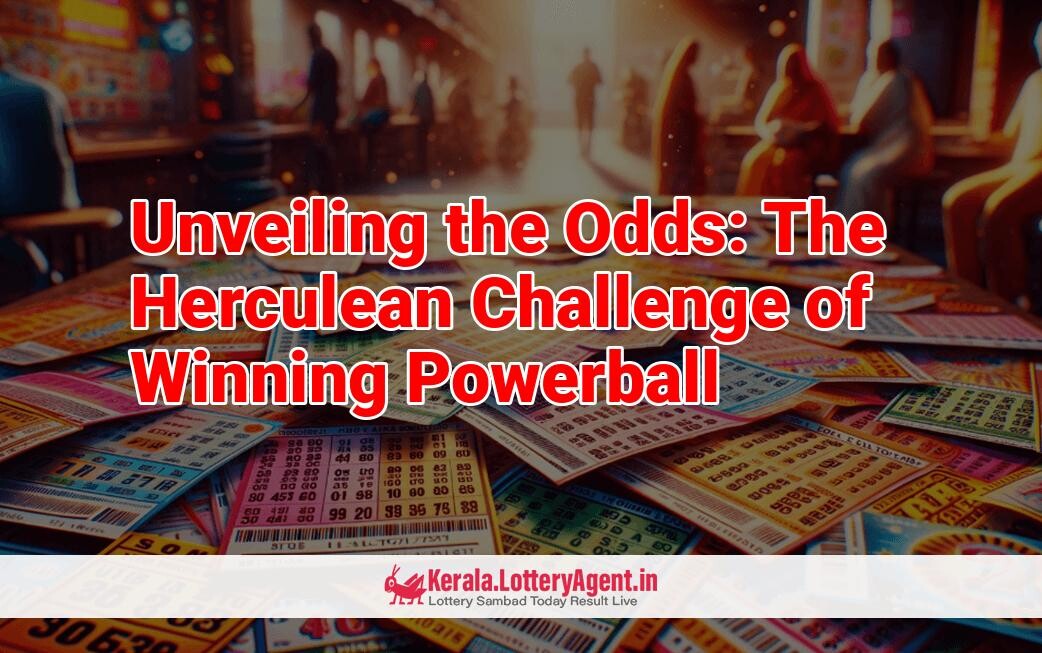
Many people indulge in the fantasy of Powerball riches, dreaming of the day their financial worries dissolve with the revelation of those lucky numbers. Yet, while the Powerball promises to crown millionaires, the barrier to claiming its jackpot is stupendously high—a daunting 1 in 292 million. Indeed, that figure represents the spectrum of potential combinations, and amongst them is a singular winning sequence.
This astronomical figure lays bare an incontrovertible truth; triumph is contingent on fortune so extraordinary that it borders on the miraculous. Yet, some speculate whether purchasing tickets to cover every possible outcome might secure the coveted jackpot. To assess this hypothesis, we must first comprehend Powerball’s inner workings.
Powerball’s allure comes wrapped in a simple premise: select five numbers from a pool of 69 white balls, and one extra—the Powerball—from a selection of 26. The jackpot is yours should you match every number on draw night. Powerball employs two drawing machines, one designated for the white balls and another for the Powerball, ensuring a decidedly random outcome as they churn wildly before releasing the fate-determining spheres.
The tense, dramatic process unfolds live on national television, with viewers across the United States glued to their screens, eager to catch sight of a potentially life-altering sequence of numbers.
To unravel the enigma of the total possible combinations, we employ mathematical formulations, specifically the binomial coefficient formula. Consider how one might select five balls from 69 and then a single Powerball from among 26.
We calculate each set of combinations separately:
– Selecting 5 out of 69
– Selecting 1 out of 26
Upon multiplying the results, the number of Powerball combinations surfaces—292,201,338 to be precise. When compared to other lotteries, Powerball distinguishes itself by offering a more formidable challenge, which translates into substantially larger jackpots.
Attempting to purchase every conceivable ticket, one might find themselves committing over $584 million to the venture. This endeavor, while potentially rewarding if the jackpot surges past that investment, is fraught with impracticality.
Considerations such as the prohibitive expense, the sheer logistical nightmare, and the potential for jackpot sharing loom large. For example, in the event of a $900 million jackpot, purchasing every combination could theoretically yield almost $993.5 million when factoring in smaller prize tiers. However, this simplistic view does not factor in taxation nor the possibility of jackpot splitting, both of which could dramatically diminish returns.
Furthermore, strategies such as wheeling systems, quick pick, and Pick 5, while perhaps enhancing one’s chance to claim lesser prizes, offer no golden ticket to jackpot victory. In reality, all one can do is play their chosen numbers and cling to the faint hope that fortune favors their selection.
For those inquiring about how many tickets one should buy, prudence suggests only as many as your financial circumstances permit. Each ticket incrementally enhances your odds; yet even purchasing a hundred grants you a still negligible chance of victory.
Generating a complete list of all possible Powerball combinations is a task for colossal computing power, not easily facilitated by common internet tools. And while certain numbers—such as 61, 32, 21, 36, 63, and 23—feature more prolifically, this bears no promise of future draws.
Methods like the one employed by Stefan Mandel in days past—a cunning lottery strategy—are unviable for Powerball’s extensive number range and the disproportion between jackpot-to-ticket cost ratios.
Powerball captivates with its promise of untold wealth, starting at $20 million and climbing until won. The record still stands at a staggering $1.6 billion. Those fortunate to win should promptly contact lottery officials and seek guidance, perhaps investigating the option of anonymity where permissible and marshalling the requisite financial advice to navigate newfound riches.
In the end, the Powerball saga is one of planetary-scale odds, minute chances, and an enduring ember of hope that perhaps, just perhaps, the next draw might conjure a life-altering windfall.











